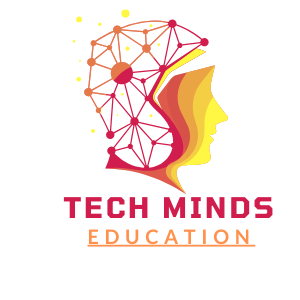Course Overview
Java Full Stack Development, also known as penetration testing or white-hat hacking, involves authorized and legal attempts to identify and exploit vulnerabilities in computer systems, networks, or applications. The primary goal of ethical hacking is to assess the security posture of an organization’s systems and infrastructure, helping to identify and rectify potential weaknesses before malicious hackers can exploit them. Here’s an overview of ethical hacking:
Module 1: Java Fundamentals (40 Hours)
Objective: Learn core Java programming concepts.
- Introduction to Java (4 Hours)
– Overview of Java and its ecosystem
– Setting up the development environment - Basic Java Syntax (6 Hours)
– Variables, Data Types, and Operators
– Control Flow Statements (if, switch, loops) - Object-Oriented Programming (10 Hours)
– Classes and Objects
– Inheritance, Polymorphism, and Encapsulation
– Abstraction and Interfaces - Exception Handling (4 Hours)
– Try-Catch Blocks
– Custom Exceptions - Java Collections Framework (8 Hours)
– Lists, Sets, Maps, and Queues
– Iterators and Streams - Java I/O and File Handling (4 Hours)
– File I/O, BufferedReader, and BufferedWriter
– Serialization and Deserialization - Multithreading and Concurrency (4 Hours)
– Thread Lifecycle and Synchronization
– Executors, Futures, and Callable
Module 2: Front-End Mastery (50 Hours)
Objective: Dive into HTML, CSS, JavaScript, and modern frameworks like React.js.
- HTML & CSS Fundamentals (10 Hours)
– HTML Elements and Attributes
– CSS Styling, Layouts, and Flexbox
- JavaScript Basics (10 Hours)
– Variables, Functions, and Events
– DOM Manipulation and Event Handling - Advanced JavaScript (10 Hours)
– ES6 Features (Arrow Functions, Promises, etc.)
– Asynchronous JavaScript (Callbacks, Promises, Async/Await) - Introduction to React.js (10 Hours)
– Components, Props, and State
– JSX and Virtual DOM - Advanced React.js (10 Hours)
– Hooks, Context API, and Router
– State Management with Redux
Module 3: Back-End Expertise (50 Hours)
Objective: Master Java-based back-end technologies including Spring and Hibernate.
- Introduction to Web Development (5 Hours)
– HTTP, REST, and Web Servers - Spring Framework Basics (10 Hours)
– Dependency Injection and Inversion of Control
– Spring Boot and MVC Architecture - Data Access with Hibernate (10 Hours)
– ORM Concepts and Hibernate Setup
– CRUD Operations and HQL
- Building RESTful APIs (10 Hours)
– RESTful Principles and Design
– Implementing REST APIs with Spring Boot - Security and Authentication (10 Hours)
– Spring Security Basics
– OAuth2 and JWT - Microservices Architecture (5 Hours)
– Introduction to Microservices
– Implementing Microservices with Spring Cloud
Module 4: Database Management (30 Hours)
Objective: Get skilled in working with MySQL and PostgreSQL.
- Introduction to Databases (5 Hours)
– Database Design and Normalization
– ER Diagrams and Relationships - SQL Basics (10 Hours)
– Writing Queries in MySQL and PostgreSQL
– Joins, Subqueries, and Aggregations - Advanced SQL (5 Hours)
– Stored Procedures, Functions, and Triggers
– Indexing and Query Optimization - Database Connectivity (5 Hours)
– JDBC and ORM with Hibernate
– Connection Pooling and Transactions - Database Security and Backup (5 Hours)
– User Management and Permissions
– Backup and Restore Procedures
Module 5: DevOps Integration (30 Hours)
Objective: Learn to deploy applications using CI/CD pipelines, Docker, and Kubernetes.
- Introduction to DevOps (5 Hours)
– DevOps Principles and Practices
– CI/CD Concepts and Tools - Version Control with Git (5 Hours)
– Git Basics, Branching, and Merging
– GitHub/GitLab for Collaboration - Continuous Integration (5 Hours)
– Setting up Jenkins and CI Pipelines
– Integrating Automated Testing
- Containerization with Docker (5 Hours)
– Docker Basics and Images
– Docker Compose and Networking
- Container Orchestration with Kubernetes (5 Hours)
– Kubernetes Architecture and Components
– Deploying and Managing Applications on Kubernetes - Monitoring and Logging (5 Hours)
– Prometheus, Grafana, and ELK Stack
– Application and System Monitoring
Module 6: Capstone Project (30 Hours)
Objective: Apply your knowledge in a real-world project guided by our expert mentors.
- Project Planning and Design (5 Hours)
– Requirement Analysis and System Design
– Tools for Project Management - Implementation Phase 1 (10 Hours)
– Front-End Development with React.js
– Back-End Development with Spring Boot - Implementation Phase 2 (10 Hours)
– Database Integration and Management
– CI/CD Setup and Deployment - Final Presentation and Review (5 Hours)
– Project Documentation and Reporting
– Final Presentation and Feedback
TOTAL HOURS = 200 HR


